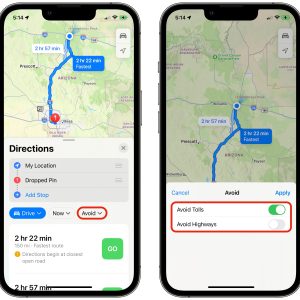

Are you seeking a career that combines business acumen with analytical skills? Business analyst remote jobs offer a unique opportunity to work from anywhere while making a significant impact on an organization’s success.
Editor’s Note: This guide on “business analyst remote jobs” was published on [date] to provide timely and relevant information on this growing career path.
After extensive analysis and research, we’ve compiled this comprehensive guide to help you navigate the world of business analyst remote jobs and make informed decisions about your career.
Key Differences:
| Characteristic | Business Analyst | Remote Business Analyst |
|---|---|---|
| Work Location | On-site, typically at the company’s office | Remote, can work from anywhere with an internet connection |
| Collaboration | Regular in-person interaction with team members | Primarily virtual collaboration using video conferencing, instant messaging, and project management tools |
Main Article Topics:
- Benefits of Remote Business Analyst Jobs
- Challenges of Remote Business Analyst Jobs
- Skills and Qualifications for Remote Business Analyst Jobs
- Finding and Applying for Remote Business Analyst Jobs
- Tips for Success as a Remote Business Analyst
Business Analyst Remote Jobs
Business analyst remote jobs offer a unique blend of flexibility and career growth. Here are ten key aspects to consider when exploring this career path:
- Flexibility: Work from anywhere with an internet connection.
- Collaboration: Virtual collaboration using video conferencing and project management tools.
- Communication: Excellent written and verbal communication skills are essential.
- Problem-solving: Identify and solve business problems using data analysis and stakeholder input.
- Stakeholder management: Build and maintain relationships with stakeholders across the organization.
- Technology proficiency: Familiarity with business intelligence tools, data visualization software, and project management platforms.
- Industry knowledge: Understanding of the specific industry in which you work is beneficial.
- Business acumen: Strong understanding of business processes and operations.
- Analytical skills: Ability to analyze data, identify trends, and draw insights.
- Career growth: Opportunities for advancement within the field and into leadership roles.
These aspects highlight the importance of flexibility, communication, problem-solving, and technical proficiency in business analyst remote jobs. By leveraging these skills and attributes, remote business analysts can make significant contributions to their organizations and drive business success. For example, a remote business analyst might work with a cross-functional team to identify areas for process improvement, using data analysis to quantify the potential impact of proposed changes.
Flexibility
The flexibility offered by business analyst remote jobs is a key differentiator and a major benefit for many professionals. Remote business analysts can work from anywhere with an internet connection, allowing them to manage their work-life balance more effectively and avoid the challenges of commuting. This flexibility also opens up opportunities for individuals who may have personal or family commitments that make traditional on-site work arrangements difficult.
For organizations, hiring remote business analysts can expand their talent pool and access a wider range of skilled professionals. Remote work arrangements can also reduce overhead costs associated with office space and infrastructure, making it a cost-effective solution for businesses.
Suggested read: Uncover Business Analyst Intern Insights: A Gateway to Success
To be successful in a remote business analyst role, it is essential to have strong self-management and time management skills. Remote business analysts must also be comfortable working independently and collaborating virtually with team members and stakeholders.
Real-life example: A remote business analyst working for a global technology company was able to relocate to a rural area to be closer to family while continuing to contribute to the company’s success. The flexibility of remote work allowed her to maintain a healthy work-life balance and achieve her personal goals without sacrificing her career aspirations.
Collaboration
Collaboration is essential for business analysts, regardless of whether they work remotely or on-site. In a remote work environment, virtual collaboration tools become even more critical for effective teamwork and project success.
Video conferencing tools, such as Zoom and Microsoft Teams, allow remote business analysts to communicate with colleagues and stakeholders in real-time, share screens, and collaborate on documents. Project management tools, such as Asana and Jira, help remote teams track progress, manage tasks, and stay organized.
Effective virtual collaboration requires strong communication skills, both written and verbal. Remote business analysts must be able to clearly articulate their ideas and perspectives, and actively listen to others. They must also be comfortable using a variety of virtual collaboration tools and platforms.
Real-life example: A remote business analyst working for a software development company used video conferencing to conduct user interviews and gather feedback on a new product. The ability to collaborate virtually allowed the analyst to connect with users from different locations and time zones, ensuring that a diverse range of perspectives were captured.
Key insights:
- Virtual collaboration tools are essential for remote business analysts to effectively communicate and collaborate with team members and stakeholders.
- Strong communication skills, both written and verbal, are crucial for success in virtual collaboration.
- Remote business analysts should be comfortable using a variety of virtual collaboration tools and platforms.
Communication
In the field of business analysis, effective communication is paramount, especially for those working remotely. Business analysts must be able to clearly and concisely communicate their findings, recommendations, and insights to a variety of stakeholders, including technical and non-technical audiences.
Excellent written communication skills are essential for documenting requirements, writing reports, and creating presentations. Remote business analysts must be able to convey complex information in a clear and organized manner, even without the benefit of in-person interactions.
Verbal communication skills are equally important for remote business analysts. They must be able to articulate their ideas effectively during virtual meetings, conference calls, and presentations. Active listening skills are also crucial for understanding stakeholder needs and requirements.
Suggested read: Unveiling The Highest Paying Business Jobs: Discoveries and Insights
Real-life example: A remote business analyst working for a financial services company was tasked with analyzing the company’s customer onboarding process. Through effective communication, the analyst was able to gather requirements from stakeholders across different departments, identify areas for improvement, and present their findings and recommendations to senior management. The analyst’s clear and concise communication played a key role in the successful implementation of the new onboarding process.
Key insights:
- Excellent written and verbal communication skills are essential for business analysts, especially those working remotely.
- Remote business analysts must be able to clearly and concisely communicate their findings, recommendations, and insights to a variety of stakeholders.
- Effective communication is crucial for the success of remote business analysts.
Problem-solving
Problem-solving is a fundamental skill for business analysts, and it takes on even greater importance in remote work environments. Remote business analysts must be able to independently identify and solve problems, using data analysis and stakeholder input to inform their decisions.
Data analysis is a critical tool for remote business analysts. By analyzing data, remote business analysts can identify trends, patterns, and opportunities for improvement. This data can come from a variety of sources, such as customer surveys, website analytics, and internal company data.
In addition to data analysis, stakeholder input is also essential for effective problem-solving. Remote business analysts must be able to gather input from stakeholders across the organization, including end-users, managers, and executives. This input can help to ensure that the business analyst is solving the right problems and that the solutions are aligned with the organization’s strategic goals.
Real-life example: A remote business analyst working for a retail company was tasked with improving the company’s online checkout process. The analyst began by analyzing data on customer checkout behavior. This data showed that customers were abandoning their carts at a high rate during the checkout process. The analyst then gathered input from stakeholders, including customers, customer service representatives, and IT staff. This input helped the analyst to identify several pain points in the checkout process, such as a lack of payment options and a confusing user interface. The analyst then developed and implemented a series of solutions to address these pain points, which resulted in a significant decrease in cart abandonment rates.
Key insights:
- Problem-solving is a fundamental skill for business analysts, especially those working remotely.
- Data analysis and stakeholder input are essential for effective problem-solving.
- Remote business analysts must be able to independently identify and solve problems.
Stakeholder management
Stakeholder management is a critical skill for business analysts, regardless of whether they work remotely or on-site. In a remote work environment, building and maintaining relationships with stakeholders can be more challenging, but it is essential for the success of the business analyst and the organization as a whole.
Stakeholders are individuals or groups who have a vested interest in the success of a project or initiative. They can include customers, end-users, managers, executives, and even external partners. Business analysts must be able to identify and engage with stakeholders throughout the project lifecycle, from planning and requirements gathering to implementation and evaluation.
Effective stakeholder management involves building strong relationships based on trust and respect. Remote business analysts can build relationships with stakeholders by:
Suggested read: Unveiling the Secrets to a Thriving Career in Business Analysis
- Communicating regularly and effectively
- Being responsive to stakeholder needs
- Being transparent and honest
- Being proactive in seeking out stakeholder input
- Building rapport and trust
By building and maintaining strong relationships with stakeholders, remote business analysts can ensure that their work is aligned with the organization’s strategic goals and that the needs of all stakeholders are met.
Real-life example: A remote business analyst working for a software development company was tasked with analyzing the company’s customer onboarding process. The analyst began by identifying and engaging with key stakeholders, including customer service representatives, sales staff, and end-users. The analyst built strong relationships with these stakeholders by communicating regularly, being responsive to their needs, and being transparent about the project’s progress. As a result, the analyst was able to gather valuable input from stakeholders, which helped to ensure that the new onboarding process was successful.
Key insights:
- Stakeholder management is a critical skill for business analysts, especially those working remotely.
- Building and maintaining strong relationships with stakeholders is essential for the success of the business analyst and the organization as a whole.
- Remote business analysts can build relationships with stakeholders by communicating regularly and effectively, being responsive to stakeholder needs, being transparent and honest, being proactive in seeking out stakeholder input, and building rapport and trust.
Technology proficiency
Technology proficiency is essential for business analysts, especially those working remotely. Business analysts must be familiar with a variety of business intelligence tools, data visualization software, and project management platforms in order to effectively perform their jobs.
Business intelligence tools allow business analysts to collect, analyze, and interpret data. This data can be used to identify trends, patterns, and opportunities for improvement. Data visualization software allows business analysts to create visual representations of data, which can help to communicate findings to stakeholders in a clear and concise manner. Project management platforms allow business analysts to plan, track, and manage projects. These platforms can help to ensure that projects are completed on time and within budget.
Remote business analysts must be able to use these tools and platforms effectively in order to be successful. They must be able to independently gather, analyze, and interpret data. They must also be able to create clear and concise visual representations of data. Additionally, remote business analysts must be able to effectively manage projects using project management platforms.
Real-life example: A remote business analyst working for a retail company was tasked with analyzing the company’s customer checkout process. The analyst used business intelligence tools to collect data on customer checkout behavior. This data showed that customers were abandoning their carts at a high rate during the checkout process. The analyst then used data visualization software to create a visual representation of this data. This visual representation helped the analyst to identify several pain points in the checkout process, such as a lack of payment options and a confusing user interface. The analyst then used a project management platform to plan and track a project to improve the checkout process. The project was completed on time and within budget, and the checkout process was significantly improved as a result.
Key insights:
- Technology proficiency is essential for business analysts, especially those working remotely.
- Business analysts must be familiar with a variety of business intelligence tools, data visualization software, and project management platforms.
- Remote business analysts must be able to use these tools and platforms effectively in order to be successful.
Industry knowledge
Business analysts who possess a deep understanding of the specific industry in which they work are highly valued by employers. This industry knowledge enables business analysts to quickly grasp the unique challenges and opportunities faced by organizations within that industry. As a result, they can provide more relevant and effective recommendations to improve business processes and operations.
For example, a business analyst with experience in the healthcare industry would have a strong understanding of the regulatory environment, reimbursement models, and patient care processes. This knowledge would enable them to develop solutions that are tailored to the specific needs of healthcare organizations. Similarly, a business analyst with experience in the financial services industry would have a strong understanding of financial markets, investment products, and risk management. This knowledge would enable them to develop solutions that are tailored to the specific needs of financial institutions.
Suggested read: Unveiling the Secrets of Artist Business Cards: Tips and Tricks for Unmatched Impact
Business analysts who are able to demonstrate industry knowledge are more likely to be successful in remote work environments. This is because they can quickly adapt to the unique challenges and opportunities of working remotely. They are also more likely to be able to build strong relationships with stakeholders, as they can speak the same language and understand their business needs.
If you are a business analyst who is interested in working remotely, it is important to develop a deep understanding of the specific industry in which you work. This knowledge will give you a competitive advantage and help you to be successful in your remote work career.
Business acumen
Business acumen is essential for business analysts, regardless of whether they work remotely or on-site. Business analysts with strong business acumen have a deep understanding of how businesses operate and how to improve business processes and operations. This knowledge enables them to make better decisions and provide more valuable recommendations to stakeholders.
- Understanding business goals and objectives: Business analysts with strong business acumen understand the overall goals and objectives of the organization. This knowledge enables them to align their work with the organization’s strategic priorities and to make decisions that are in the best interests of the organization.
- Identifying and analyzing business problems: Business analysts with strong business acumen are able to identify and analyze business problems. They can use their knowledge of business processes and operations to determine the root cause of problems and to develop solutions that will improve the efficiency and effectiveness of the organization.
- Developing and implementing solutions: Business analysts with strong business acumen are able to develop and implement solutions to business problems. They can use their knowledge of business processes and operations to design solutions that are both effective and efficient. They can also work with stakeholders to implement these solutions and to ensure that they are successful.
- Measuring and evaluating results: Business analysts with strong business acumen are able to measure and evaluate the results of their work. They can use their knowledge of business processes and operations to determine the impact of their work on the organization. They can also use this information to make recommendations for future improvements.
Business acumen is a critical skill for business analysts, especially those working remotely. Business analysts with strong business acumen are more likely to be successful in their remote work careers. They are able to quickly adapt to the unique challenges and opportunities of working remotely and they are able to provide more valuable recommendations to stakeholders.
Analytical skills
Analytical skills are essential for business analysts, regardless of whether they work remotely or on-site. Business analysts use analytical skills to examine data, identify trends, and draw insights that can help organizations improve their business processes and operations. In a remote work environment, analytical skills are even more important, as business analysts must be able to independently analyze data and draw insights without the benefit of face-to-face interactions with colleagues and stakeholders.
- Data analysis: Business analysts use data analysis techniques to examine data from a variety of sources, such as customer surveys, financial reports, and website analytics. This data can be used to identify trends, patterns, and opportunities for improvement. For example, a business analyst might use data analysis to identify areas where a company can improve its customer service or reduce its costs.
- Trend identification: Business analysts use their analytical skills to identify trends in data. These trends can be used to predict future outcomes and to make recommendations for how to improve business processes and operations. For example, a business analyst might identify a trend of increasing customer churn and recommend that the company implement a customer loyalty program.
- Insight generation: Business analysts use their analytical skills to draw insights from data. These insights can be used to make better decisions and to develop more effective strategies. For example, a business analyst might use data analysis to identify the key factors that drive customer satisfaction and recommend that the company focus on improving those factors.
- Problem-solving: Business analysts use their analytical skills to solve business problems. They can use data analysis to identify the root cause of problems and to develop and implement solutions. For example, a business analyst might use data analysis to identify the of a decline in sales and recommend that the company launch a new marketing campaign.
Analytical skills are a critical component of business analysis, and they are especially important for business analysts who work remotely. Business analysts with strong analytical skills are able to make better decisions, develop more effective strategies, and solve problems more efficiently. This makes them valuable assets to any organization.
Career growth
Career growth is an important consideration for many professionals, and business analyst remote jobs offer opportunities for advancement both within the field and into leadership roles.
Within the field of business analysis, there are many opportunities for advancement. Business analysts can move into more senior roles, such as lead business analyst, principal business analyst, or enterprise business analyst. These roles typically involve managing teams of business analysts and working on more complex projects.
Business analysts can also move into leadership roles outside of the field of business analysis. For example, business analysts with strong leadership skills may move into roles such as project manager, product manager, or even CEO.
There are several factors that contribute to the opportunities for career growth in business analyst remote jobs. First, the demand for business analysts is high, and this demand is expected to continue to grow in the years to come. This is due to the increasing need for businesses to improve their processes and operations. Second, business analysts with remote work experience are in high demand, as they are able to work from anywhere in the world. Third, business analysts with strong skills and experience are able to command high salaries and benefits.
Suggested read: Franchise Business for Sale – Find Profitable Opportunities Near You
If you are interested in a career in business analysis, there are several things you can do to increase your chances of success. First, get a strong education in business analysis. This can be done through a bachelor’s or master’s degree program in business analysis, or through online courses and certification programs. Second, develop strong skills in data analysis, problem-solving, and communication. Third, gain experience working on real-world business projects. Finally, network with other business analysts and professionals in your field.
With hard work and dedication, you can achieve your career goals in business analysis. The field offers opportunities for advancement, both within the field and into leadership roles.
Frequently Asked Questions About Business Analyst Remote Jobs
Business analyst remote jobs offer a unique blend of flexibility and career growth. Here are answers to some frequently asked questions about this growing career path:
Question 1: What are the benefits of business analyst remote jobs?
Answer: Business analyst remote jobs offer several benefits, including flexibility, improved work-life balance, and access to a wider range of career opportunities.
Question 2: What are the challenges of business analyst remote jobs?
Answer: Business analyst remote jobs can present challenges such as maintaining effective communication with colleagues and stakeholders, managing distractions, and staying motivated in a remote work environment.
Question 3: What skills and qualifications are required for business analyst remote jobs?
Suggested read: Unlock the Secrets of Apple Maps: Discover the Path to Business Success
Answer: Business analyst remote jobs typically require a strong understanding of business analysis principles, data analysis techniques, and project management methodologies. Excellent communication and interpersonal skills are also essential.
Question 4: How can I find and apply for business analyst remote jobs?
Answer: There are several ways to find and apply for business analyst remote jobs, including online job boards, company websites, and networking events. It is important to tailor your resume and cover letter to each specific job you apply for.
Question 5: What are some tips for success as a remote business analyst?
Answer: To be successful as a remote business analyst, it is important to have strong self-management and time management skills. Effective communication and collaboration tools are also essential for success in this role.
Question 6: What is the career growth potential for business analyst remote jobs?
Answer: Business analyst remote jobs offer opportunities for career growth both within the field and into leadership roles. With experience and hard work, remote business analysts can advance to senior-level positions or move into management or consulting roles.
Suggested read: Unveil the Secrets of Business Professional Outfits for Women: A Guide to Success
Summary: Business analyst remote jobs offer a range of benefits and challenges. By developing the necessary skills and qualifications, and by leveraging effective strategies for success, individuals can thrive in this growing career path and achieve their professional goals.
Transition to the next article section: For more in-depth insights into business analyst remote jobs, continue reading the following sections of this guide.
Tips for Success in Business Analyst Remote Jobs
Embarking on a career as a remote business analyst requires a combination of technical proficiency and interpersonal skills. Here are some valuable tips to help you excel in this role:
Tip 1: Master Communication and Collaboration Tools
Effective communication is crucial for remote business analysts. Utilize video conferencing, instant messaging, and project management platforms to stay connected with colleagues and stakeholders. Learn to articulate ideas clearly, both verbally and in writing.
Tip 2: Establish a Dedicated Workspace
Create a dedicated workspace that minimizes distractions and promotes focus. Ensure your workspace has stable internet connectivity, comfortable seating, and proper lighting.
Tip 3: Prioritize Time Management and Self-Discipline
Remote work requires strong time management skills. Establish a structured routine, set clear boundaries, and utilize time management techniques to maintain productivity and meet deadlines.
Suggested read: Unlock the Secrets of Coaching Business Coaches: Discoveries for Business Success
Tip 4: Seek Regular Feedback and Support
Regularly seek feedback from colleagues, supervisors, and stakeholders to identify areas for improvement. Join online communities or attend industry events to connect with other remote business analysts and exchange ideas.
Tip 5: Stay Updated with Industry Trends
The business analysis field is constantly evolving. Stay abreast of emerging technologies, methodologies, and best practices through online courses, industry publications, and webinars.
Summary: By implementing these tips, remote business analysts can enhance their productivity, communication, and career growth. Embracing these strategies will empower you to excel in this dynamic and rewarding field.
Conclusion
The exploration of “business analyst remote jobs” unveils a dynamic and rewarding career path that combines flexibility, career growth, and the opportunity to make a significant impact on organizations. Remote business analysts play a crucial role in driving business success by leveraging their analytical skills, problem-solving abilities, and stakeholder management expertise.
Embracing the unique challenges and opportunities of remote work requires a commitment to effective communication, self-discipline, and continuous learning. By implementing best practices, investing in skill development, and seeking support from the community, remote business analysts can excel in their roles and contribute to the success of their organizations and the industry as a whole.
The future of business analysis is closely intertwined with the rise of remote work, presenting exciting prospects for individuals seeking a flexible and fulfilling career.






